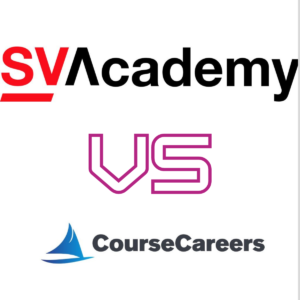The questions millions of students ask every year. Is a liberal arts degree worth it? Is it a useless degree? Will I be able to get a job with a liberal arts degree and pay off my student loans?
You’ve probably heard the horror stories. Students major in some form of liberal arts and the best job they can get is retail, making $10/hr. These same students were lead to believe they would be well rounded and could get a variety of high paying jobs.
Now, they’re pissed and want their money back. These are today’s student loan debt forgiveness protestors who were deceived by the system. They’re now stuck with loads of debt and no future they see themselves paying it off.
Here are some better questions to ask in search of the truth. Why can’t liberal arts majors get decent jobs if it supposedly gives them the ability to do any job?
What’s the real value of liberal arts? Does a liberal arts degree actually make you a well-rounded critical thinker?
Why Liberal Arts?
Liberal arts is what college was founded on. College’s first goal was to teach students a wide array of subjects to make them “educated” afterward. This would allow them to work in the clergy, take over their family business, or just be more intelligent.
The goal of liberal arts was never to get a job afterward. It was also only the wealthy people of society who could afford to send their kids to college to acquire such an education.
The ability to study any subject you were interested in even if it didn’t have any market value was and is a luxury. This is because in a free-market the way you make money is by providing value to someone else. The only people who can afford not to care about providing value to someone else is the wealthy of society.
The problem is that people simply aren’t willing to pay for your interest in one of these subjects. You knowing history or philosophy doesn’t provide enough value to someone else to make them give you money for it.
Students in the past were able to major in liberal arts and still land some entry-level job outside of their study since companies would train their employees from the ground up.
This is no longer true for a few reasons.
- Entry-level jobs aren’t so simple anymore. Just to be able to do many entry-level business jobs it requires a specialized skillset. A skillset that isn’t taught in a liberal arts program.
- Companies no longer are willing to train their employees from the ground up. Employees don’t stay at companies for 30+ years, so it’s no longer in the interest of the company to heavily invest in training upfront.
These factors have made it especially hard for liberal arts majors to even get their foot in the door of a decent job. Combine this difficulty alongside a butt load of debt and you have a major problem!
Recreational Learning VS Career Learning
It’s important to be able to differentiate between recreational learning versus career learning. Many people confuse the two and wonder why they can’t get a job in their field of study.
Recreational learning is learning for the sake of interest. Any subject you are interested in learning more about wether for a hobby or just to speak more intelligently on is recreational learning.
Career learning is learning for the sake of starting or advancing your career. Any subject you learn that allows you to provide value to a business or better do your job is career learning. At CourseCareers we train students on technology sales and get them connected with $60,000+ jobs within 3 months.
Liberal arts would be very easy to classify under recreational learning for most people. Almost everyone who majors in the liberal arts started out by just having an interest in a subject with no intention of using it to provide value to others in a job.
This wouldn’t be a problem if students understood that their liberal arts degree would not lead them to a career, but they are instead told that they can do anything with their degree.
You can also do anything with a high school diploma. You can go on to get any job you want, learn anything you want, etc. At the same time, you are capable of nothing.
Career-wise, a liberal arts degree isn’t much better than having high school diploma. Both are capable of nothing, yet can still go on to do anything. This means you’re pretty much still at square one where you have to figure out what career it is you want to do and learn a specialized skillset.
The Real Value of Liberal Arts
If liberal arts doesn’t do much for starting or advancing a career, then what’s the point? Liberal arts encompasses much of the knowledge and skills that are required for a long successful career.
This may seem confusing since I just stated that liberal arts are classified as recreational learning. While this is true, liberal arts do contribute to career success.
This is because as you move up the ranks in an organization, the skills required to be successful in your job transition into more people skills and decision-making skills than actual hard technical/process skills.
This is when the liberal arts transition from recreational learning to career learning. People will purposely learn communication skills and interpersonal skills to do their job better. They might also be able to use economics and history to improve their decision-making skills at work.
To clarify, learning liberal arts is a very poor way to start a career while also being a very good way to advance a career. If you want to start your career, then you would be much better served using something like The Lean Career Model.
The Way People Actually Become Well Rounded.
Many of you may be thinking that you won’t be an educated or intelligent adult of you don’t major in liberal arts. This is simply not true, because even if you do major in liberal arts you won’t be an intelligent well-rounded adult.
The only way to become well rounded is with experience. Advances in learning has taught us that we only truly comprehend and retain the information that we use.
This means that you can try to cram as much knowledge into a 4 year period as possible, but you still won’t be able to use it to make more comprehensive decisions or be a “critical thinker”.
The way you will become a well-rounded adult is by committing yourself to life long learning. This means you will continue your education your entire life as it serves you.
Learn about politics when you start voting. Learn about taxes when you start paying taxes. Learn about finance when you start saving money. Learn about mortgages when you buy a house.
Learn about economics when you start investing. Learn different languages when you start traveling. Learn about whatever hobbies you’re interested in at the time.
Learn about history when you develop an interest in it. Learn about art when you want to start buying or creating some. Learn about communication when you get into a relationship.
Every single day you will be learning the liberal arts for the rest of your life. Every single day you will become more well-rounded and educated.
The Truth – Is A Liberal Arts Degree Worth it?
Is a liberal arts degree worth it if you want to start your career with the knowledge and skills you aquired during your major? No. It’s not worth it if a good career is your goal.
Is a liberal arts degree worth it if you want to explore your interests with no expections of getting a good job with the knoweldge and kills you aquired during your major? Sure. As long as you don’t drown yourself in debt.
Is a liberal arts degree worth it if you know you will have to aquire a different skillset to start your career and don’t mind the additonal learning? Sure. Just try to figure out what career it is you want to learn sooner than later.




